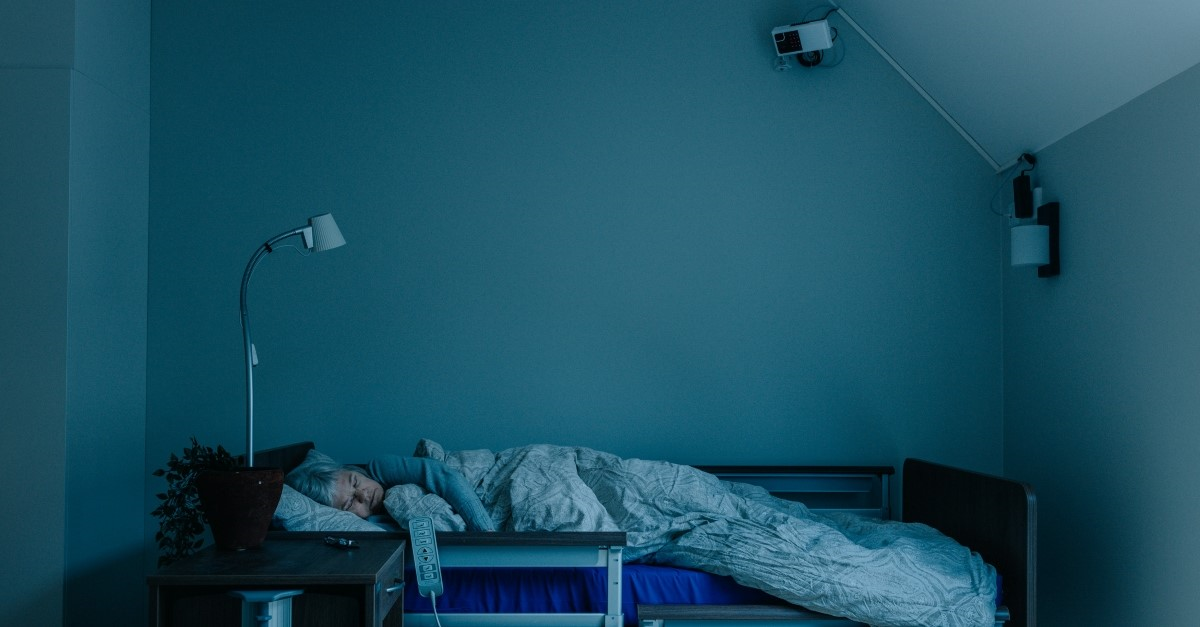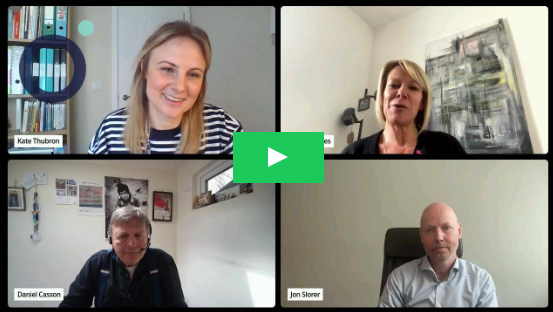Embracing the Future of Dementia Care: Insights from the Empowering the Care Workforce Webinar

In our recent webinar, "Empowering the Care Workforce to Navigate the Future of Dementia Care in the UK," we explored the evolving crisis of increasing complex care needs and the need for technological advancements that can facilitate more effective care delivery.
As the UK contends with an ageing population and with dementia cases predicted to reach one million by 2025, the necessity for innovative care solutions has never been more apparent. To discuss the issues in more depth, we brought industry expertise to the table to discuss some of the strategies being put in place today, as well as Jon Slorer, our Chief Product Officer, to discuss how technology will change the way we care over the coming years.
Addressing the Challenges with Expert Insights
We opened our round table with a review of the current challenges the care sector is facing. With over 835,000 people living with dementia in the UK and more than 70% of care home residents suffering from dementia or severe memory problems, we heard from Nicky Barnes, Quality Director for Hartford Care, about how her organisation is responding.
Hartford Care has 19 operational homes currently and is seeing first-hand the rise in dementia, with an estimated 85% of their residents either having a diagnosis or suffering cognitive impairment. To support the ever-growing number of residents with dementia, the group have appointed a Dementia Specialist who has provided expertise and enabled them to embrace innovative technologies throughout their homes.
Barnes went on to share the positive impact of RoomMate, a sensor technology from Sensio. This technology aims to enhance client safety by proactively monitoring and preventing falls. It will also significantly ease the workload on caregivers by providing real-time data and alerts, allowing them to intervene before incidents occur.
Recruiting care workers is a well-publicised issue, and like others, Hartford has also experienced huge challenges with recruitment. Still, Nicky was keen to highlight the ways they had been responsive and adaptable to the issues at hand. Nicky shared the successes of overseas recruitment as well as the positive impact of introducing volunteer schemes.
Technology at the Heart of Transformation
Kate Thubron, a renowned dementia care specialist and owner of training company Mindful Care Training, continued the conversation by stressing the importance of training and leadership in integrating new technologies. She pointed out that embracing digital tools, such as RoomMate, requires
a cultural shift within care facilities, which can be driven by effective leadership ensuring that technology complements the human touch in care.
Jon Slorer, Sensio's Chief Product Officer, shared how the company is invested in solving real problems that clients face not just in the present day but also in the future problems that the care sector will face in 2030. At the core of the Sensio mission is people’s safety. With an ageing population and the rise of dementia, client safety is at the heart of Sensio.
Slorer shared the findings of a recent research project whereby just 50% of people living with dementia, either in-home care or residential care, were able to identify when they were unsafe. Therefore, they were unable to effectively use the traditional safety technology provided for them in their place of residence. The statistics highlighted the need for a person-centred approach to safety and technology. This, in combination with the ongoing recruitment crisis not just of today but of 2030, means that care providers urgently need digital representations of caregivers and receivers to optimise operations. These ‘digital twins’ will allow care providers to model the most effective ways of delivering care, ensuring care is delivered as needed.
Sensio’s RoomMate technology offers care providers a number of ways to start to meet this need. As well as alerting care workers to dangerous situations that are currently out of their immediate sight, it can allow them to check in on residents throughout their care services proactively. This ability to extend the view of their care can be transformational in giving confidence and peace of mind when ensuring a safe environment. Citing a 2024 study by the Norwegian Smart Care Lab, Slorer shared hugely impressive statistics: a Net Promoter Score (NPS) of 75% and significant reductions in falls and stress among staff. This sensor technology exemplifies how digital solutions can alleviate the growing strain on healthcare systems by enhancing the quality of life and safety of residents.
Strategic Innovations and Long-term Benefits
The webinar delved into the strategic use of data to individualise care and Sensio’s ambitions for the future, with the development of Sensio Insight. Sensio Insight will go further to improve the staff’s expertise and ability to spot and solve challenges. It works as a detailed report for staff to use during handover times or when reviewing how a resident is. With just one glance, a staff member will be able to engage their clinal view and be able to respond to changes and problems with efficiency and proficiency.
Slorer talked the panel through Sensio’s plans for Digital Twinning. Digital Twinning will catch health challenges earlier, predict health journeys and become a vital tool in person-centred care. This highly insightful digital approach not only improves care but also optimises staffing, a crucial advantage in today's resource-strained healthcare environment. Sensio Insight, alongside digital twinning and data analytics shows how
Sensio is paving the way for personalised care plans that are both effective and efficient.
A common view shared by all panellists was the need for clear communication to staff to manage the implementation of new technology to ensure positive outcomes, and Slorer spoke of how Sensio promote ‘change management’. The more effective the change management with senior staff members and the deeper their understanding of the new technology, the easier and more positive the embrace from staff members will be using the technology on a daily basis.
Nicky Barnes confirmed the positive impact of RoomMate, stating how not a single resident or family member opted out of having the technology in their rooms. RoomMate has become a sales asset to Hartford Care. She spoke about the encouraging impact on staff and how RoomMate has freed up time for staff to complete other important tasks during their shifts.
Concluding Thoughts
The session concluded with a unified call for ongoing adaptation and learning in dementia care practices. All our panellists agreed that the integration of innovative technologies like RoomMate could significantly transform care delivery, making it more responsive and less intrusive. As the UK faces a future with an increasing elderly population, the lessons from this webinar underscore the importance of technology in crafting sustainable, compassionate care solutions to support us not just for today but for the future.
Our webinar, "Empowering the Care Workforce," focused on challenges but we were delighted how the panel also showcased the transformative potential of technology in dementia care. With tools like Sensio's RoomMate, Sensio Insights, and Digital Twinning, care providers are and will be equipped to offer better safety, more efficient care, and a higher quality of life for those living with dementia.
If you would like to watch our webinar you can register with us to view a recording, and please join our newsletter if you would like to hear about future webinars.
